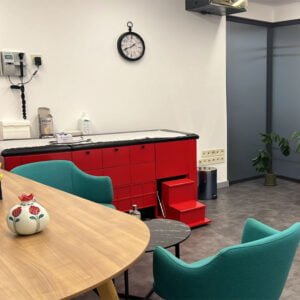Food Intolerance Treatment
- Home
- Food Intolerance Treatment

All Inclusive Package Details
5 Star Accommodation
Transfer Services
Hospital
Expert Allergy Doctors
Why Should You Choose Us?
Founded in 2022, CURExplore is a service provider that brings together guests from abroad through medical staff and translators who can speak their own language.
CURExplore, which organizes international patients from all over the world, mostly from Europe to Turkey, is an Istanbul-based health tourism intermediary company that is a member of TURSAB (Association of Turkish Travel Agencies) with the code 14076 and has the Ministry of Health Accreditation.
30-minute free consultation.
After free online consultation, we determine your needs and plan your operation free of charge.
No Surprise Costs
We will not charge you any additional fees.
All Inclusive Packages
5-Star Accommodation, Transfer, Post-Operative Care at the Hotel, Translator, All Processes with You
Fill Out the Form and Get a Personalized Quote
Address
Küçükbakkalköy neighborhood. Merdivenköy Yolu neighborhood. No:12/1 Ataşehir / İstanbulContact Form
Frequently Asked Questions on Food Intolerance Treatment
Food intolerance is a condition experienced by individuals who have difficulty digesting certain foods. Physical reactions to some foods are common, but most are due to food intolerance rather than food allergies. In food intolerance, a substance in the food cannot be properly digested or broken down by the individual's digestive system. This causes a reaction in the digestive system.
Food intolerance can manifest with a variety of symptoms that vary from person to person. The most common symptoms affect the digestive system. These include gas, bloating, stomach pain, diarrhea, and constipation. In some people, food intolerance can also lead to skin reactions such as rashes or eczema. More general symptoms such as headaches, fatigue, and joint pain may also be observed, but these symptoms can be more difficult to diagnose as they can also be associated with other health issues.
Symptoms of food intolerance can appear immediately after eating the problematic food, but sometimes they may not appear for several hours or days. This delay makes diagnosis challenging. Additionally, symptoms often vary depending on the amount of food consumed; small amounts may not cause problems, but larger amounts can lead to digestive issues.
A particularly common type of intolerance is lactose intolerance, which involves symptoms related to the inability to digest dairy products. Gluten intolerance (non-celiac gluten sensitivity) is also common, where individuals experience digestive problems associated with gluten-containing foods like wheat, rye, and barley.
When encountering these symptoms, it is important to consult a health professional and make dietary changes if necessary. The diagnosis and management of food intolerance require a personalized approach.
Food allergy occurs as a result of the body's overactive immune system response to certain foods and can cause serious symptoms. Common symptoms of food allergy include swelling of the mouth, lips, face, tongue, and throat; itchy rashes or hives; stomach pain, diarrhea, nausea, and vomiting. Respiratory problems such as worsening asthma symptoms, shortness of breath, and wheezing are also among the symptoms of food allergies.
The most serious and urgent medical symptom of food allergy is anaphylaxis. Anaphylaxis is a severe allergic reaction that affects the entire body, leading to a rapid drop in blood pressure, severe shortness of breath, fainting, and even death. Such a reaction usually develops very quickly and requires immediate medical attention.
Symptoms of food allergy typically appear shortly after consuming the allergenic food, but sometimes they can develop after several hours. The severity of allergic reactions can vary from person to person and each exposure.
A true food allergy affects the immune system. Even small amounts of the offending food can trigger a series of serious or life-threatening symptoms. In contrast, food intolerance usually only affects the digestive system and causes less severe symptoms.
If there is a suspicion of food allergy, it is important to consult a health professional. Allergy tests and medical evaluations can help determine which foods are causing problems and identify appropriate treatment methods. Avoiding allergenic foods from the diet and being careful about reading labels is necessary to avoid allergic reactions.
Diagnosing food intolerance typically involves multiple steps and assessments, as symptoms are often vague and can be confused with other health issues. Initially, a doctor will usually conduct a detailed examination of the patient's medical history and symptoms. Information such as the patient's eating habits, the timing and frequency of symptom onset, and the severity of symptoms is important.
During the diagnostic process, the doctor often recommends keeping a food diary. In this diary, the individual records everything they eat and any symptoms they experience afterward. This can help identify possible connections between certain foods and symptoms.
Another method used in diagnosis is an elimination diet. In this method, foods thought to be potentially problematic are temporarily removed from the diet. These foods are then gradually reintroduced into the diet, and any recurrence of symptoms is observed.
The diagnostic process is typically guided by expert health professionals such as dietitians, gastroenterologists, or allergists. Diagnosing food intolerance requires a comprehensive assessment of the individual's lifestyle, health history, and symptoms.
The treatment of food intolerance primarily involves identifying and eliminating problematic foods from the diet. This process is usually tailored to the individual's specific nutritional needs and the severity of their intolerance.
The most common treatment method is the gradual elimination of certain foods or food groups from the diet. There are typically no specific medications for food intolerance, but some supplements can help facilitate digestion. For example, individuals with lactose intolerance can take lactase enzyme supplements before consuming lactose-containing foods or can consume lactose-free products. In the case of gluten intolerance, foods containing wheat, rye, and barley, which contain gluten, should be avoided.
In some cases, individuals may not be completely intolerant to certain foods and can consume them in small amounts. However, it's necessary for the individual to monitor their
own body reactions and understand how much can be tolerated.
During the treatment process, monitoring symptoms and assessing the effects of dietary changes are also important. This allows for the diet to be adjusted over time and the individual's nutritional needs to be best met. In all cases, the treatment of food intolerance should be personalized based on individual needs and responses.


























